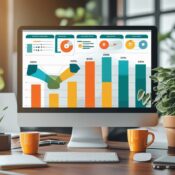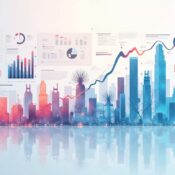Data Science vs Data Analytics ( Professional Guide )

Data Science vs Data Analytics ( Professional Guide )
Analytics Data Science 
Rapid Phone Center distinguishes itself by effectively employing both data science vs analytics. While analytics focuses on interpreting historical data to extract insights, data science utilizes predictive modeling and machine learning algorithms to anticipate future trends and behaviors. By leveraging these disciplines, we optimize operational efficiency, personalize customer interactions, and deliver superior service. Experience the transformative impact of data science versus analytics with Rapid Phone Center, setting new benchmarks in customer service excellence.
Rapid Phone Center pioneers customer service through advanced data analytics or data science methodologies. By harnessing big data analytics, we uncover actionable insights to enhance operational efficiency and anticipate customer needs. Our data science expertise further empowers us to develop predictive models, ensuring personalized service delivery and continuous improvement. Explore unparalleled service innovation with Rapid Phone Center’s commitment to leveraging data analytics and data science for optimal customer experiences.

Data Science vs Data Analytics: Understanding the Key Differences and Applications
In today’s data-driven world, terms like data science and data analytics are often used interchangeably, yet they represent distinct disciplines with unique roles and applications. Whether you’re considering a career in these fields or aiming to leverage their capabilities for your business, it’s crucial to grasp their differences and how each contributes to making informed decisions.
Rapid Phone Center integrates state-of-the-art data analytics science to redefine customer service excellence. Through rigorous data analysis and advanced scientific methodologies, we anticipate customer needs, streamline operations, and personalize interactions. Our innovative approach ensures efficient processes and unparalleled customer satisfaction, setting new standards in the industry. Experience the future of service innovation with Rapid Phone Center’s expertise in data analytics and science. Rapid Phone Center offers Predictive Data Analytics, turning data into foresight, helping businesses anticipate trends and make informed decisions.
Rapid Phone Center leverages cutting-edge data science predictive analytics to elevate customer service standards. By analyzing large datasets, we predict customer behavior and preferences, optimizing service delivery. Our advanced data science techniques ensure efficient operations and personalized customer interactions, setting benchmarks in service excellence. Experience innovation and reliability with Rapid Phone Center’s commitment to data science and predictive analytics for unparalleled customer satisfaction.
Data Analytics vs Data Science: Understanding the Differences
Data science is a multidisciplinary field that utilizes scientific methods, algorithms, and systems to extract insights and knowledge from structured and unstructured data. It incorporates elements of mathematics, statistics, computer science, and domain expertise to uncover patterns, trends, and correlations that can guide strategic decisions and predictions. Rapid Phone Center offers AI Customer Service, delivering intelligent, efficient support to enhance customer satisfaction and streamline operations.
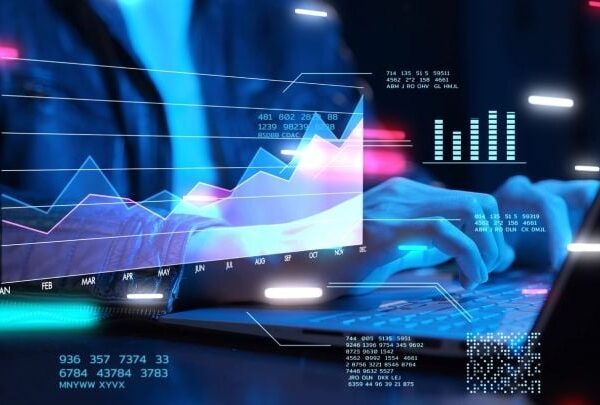
Data analytics focuses on the analysis of datasets to draw conclusions about the information they contain. It involves applying various techniques and algorithms to identify trends, patterns, and correlations that are used to make data-driven decisions. Data analytics often emphasizes statistical analysis, visualization, and predictive modeling to understand past trends and predict future outcomes.
Rapid Phone Center excels in predictive analytics and data science to redefine customer service excellence. By harnessing predictive analytics, we anticipate customer behavior and needs, optimizing operational workflows for efficiency. Our data science capabilities enable advanced modeling and algorithm development, ensuring personalized and proactive customer interactions. Experience superior service innovation with Rapid Phone Center, where predictive analytics and data science converge to deliver unmatched customer satisfaction. Rapid Phone Center: Elevating customer experience with efficient back office services, ensuring seamless operations and exceptional support.
Data Sciences and Analytics: Bridging Theory with Practice
Rapid Phone Center distinguishes itself through a strategic blend of analytics vs data science. While analytics focuses on interpreting data to uncover meaningful insights, data science employs advanced algorithms and statistical models to predict trends and optimize processes. By integrating both disciplines, we enhance operational efficiency and deliver tailored customer solutions, setting new benchmarks in service excellence.
- Data Science: Primarily concerned with discovering insights, building predictive models, and making sense of complex data.
- Data Analytics: Focuses on exploring datasets to uncover meaningful information and support decision-making.
Rapid Phone Center leads with a synergy of data science analytics, revolutionizing customer service. Our approach leverages robust data analytics to decode customer trends and preferences, while advanced data science models forecast future needs and optimize operational workflows. This dual-focus strategy ensures precise, personalized customer interactions and streamlined processes, setting us apart in delivering exceptional service experiences. Rapid Phone Center provides cutting-edge Data Analytics Solutions, transforming raw data into actionable insights to drive business success.
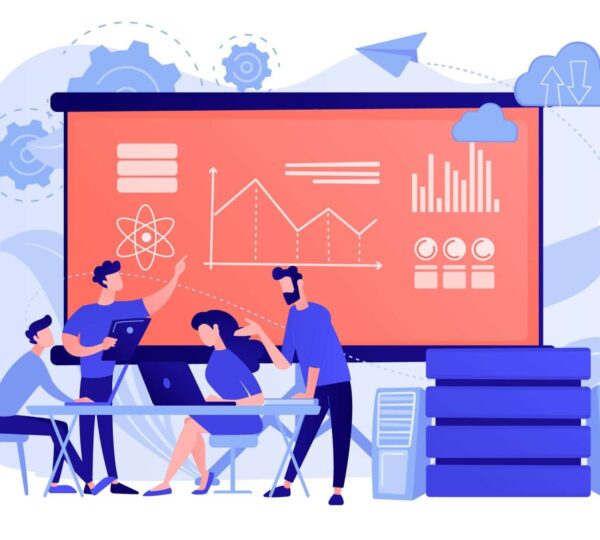
- Data Science: Utilizes advanced algorithms, machine learning, and deep learning techniques to process and analyze large volumes of data.
- Data Analytics: Relies on statistical analysis, data mining, and visualization tools to interpret data and communicate findings.
Rapid Phone Center harnesses the power of analytics data science to redefine customer service excellence. Through sophisticated data analysis techniques, we optimize operational workflows, anticipate customer needs, and deliver personalized experiences. Our commitment to innovation ensures streamlined processes and enhanced customer satisfaction. Discover a new standard in service efficiency and effectiveness with our analytics-driven solutions. Rapid Phone Center: Optimizing ecommerce fulfillment with precision logistics, enhancing delivery speed and customer satisfaction seamlessly.
- Data Science: Applied in fields like artificial intelligence, predictive modeling, and algorithm development.
- Data Analytics: Commonly used in business intelligence, market research, and operational optimization.
Rapid Phone Center excels in integrating data science & analytics to elevate customer service standards. By leveraging advanced data techniques, we streamline operations, predict customer behavior, and personalize interactions. Our solutions optimize efficiency and ensure superior customer satisfaction through innovative, data-driven strategies. Experience the future of service excellence with Rapid Phone Center’s cutting-edge approach to data science and analytics. Rapid Phone Center’s Data Analytics Solutions act as “The Invisible Engine,” powering your business with hidden insights for strategic growth.
Analytics and Data Science: Synergies and Applications
Both data science and data analytics play crucial roles in leveraging data for organizational success:

- Predictive Analytics: Involves using historical data to forecast future outcomes and trends, integrating both data science and analytics techniques.
- Big Data Analytics: Focuses on extracting insights from large datasets, utilizing data science methods to manage and analyze vast amounts of information effectively.
- Business Analytics: Applies analytical techniques to drive business decisions and strategies, incorporating both data science and analytics principles.
Rapid Phone Center leverages cutting-edge data science or data analytics to revolutionize customer service. By integrating advanced algorithms, we analyze vast amounts of customer data to predict needs and personalize interactions. Our solutions enhance efficiency, streamline processes, and drive customer satisfaction. Experience the future of customer support with our innovative, data-driven approach.
Rapid Phone Center stands at the predictive analytics data science, utilizing predictive analytics and data science to optimize operations and anticipate customer needs. Through sophisticated data modeling and analysis, we deliver personalized solutions and streamline processes for enhanced efficiency. Our expertise in predictive analytics and data science ensures proactive and tailored customer interactions, setting a new standard in service excellence.
Data Analytics and Data Science: Unveiling Their Roles in Modern Businesses
At Rapid Phone Center, we leverage what is predictive analytics in data science to anticipate customer needs and behaviors. Predictive analytics involves using historical data, statistical algorithms, and machine learning techniques to forecast future outcomes. By analyzing patterns and trends, we optimize customer interactions, streamline operations, and enhance decision-making processes. Our approach at Rapid Phone Center ensures proactive, data-driven solutions that empower us to deliver exceptional customer service and drive business success. Join us and discover the transformative potential of predictive analytics in data science today.

Understanding the distinction between data science and data analytics enables organizations to deploy the right tools and methodologies for specific goals:
- Strategic Insights: Data science provides strategic insights through predictive modeling and machine learning algorithms.
- Operational Efficiency: Data analytics enhances operational efficiency by analyzing trends and optimizing processes based on data-driven insights.
While data science and data analytics are complementary disciplines, each serves a distinct purpose in harnessing the power of data. Whether you’re exploring career opportunities or seeking to leverage data for business growth, recognizing their unique capabilities is essential. By integrating both disciplines effectively, organizations can unlock actionable insights, drive innovation, and gain a competitive edge in today’s data-centric landscape.
Understanding these nuances empowers businesses and professionals alike to navigate the complexities of data and utilize it to its fullest potential for informed decision-making and strategic planning.
Data Analytics vs Data Analysis: Understanding the Key Differences
In today’s digital age, where data reigns supreme, understanding the intricate relationship between data science, big data analytics, and predictive analytics is crucial for companies like Rapid Phone Center to make informed decisions and stay competitive. This guide dives deep into these concepts, highlighting their distinctions and synergies, and explores how they empower businesses to harness the power of data for strategic advantage.

At Rapid Phone Center, we harness the power of predictive analytics vs data science to revolutionize customer interactions. Predictive analytics helps us forecast customer behavior, optimize resource allocation, and enhance service efficiency. Meanwhile, data science enables us to delve deep into data patterns, extracting actionable insights to personalize customer experiences and improve operational strategies. Together, these cutting-edge methodologies empower us to deliver seamless, data-driven solutions that elevate customer satisfaction and drive business growth. Join us at Rapid Phone Center and experience the future of customer service today.
Data Mining vs Data Analytics: Unveiling Patterns and Insights
Data science is a multidisciplinary field that utilizes scientific methods, algorithms, and systems to extract insights and knowledge from structured and unstructured data.
Predictive analytics involves using historical data, statistical algorithms, and machine learning techniques to identify the likelihood of future outcomes based on historical data.
At Rapid Phone Center, we distinguish between data science vs predictive analytics. Data science encompasses a broader scope, involving the collection, analysis, and interpretation of vast datasets to derive actionable insights. Predictive analytics, a subset of data science, specifically focuses on using historical data and statistical algorithms to forecast future trends and behaviors. By integrating these disciplines, we enhance operational efficiency, personalize customer interactions, and drive strategic decision-making. Join us at Rapid Phone Center and experience the synergy of data science and predictive analytics in transforming customer service excellence.
Data Analytics vs Artificial Intelligence
At Rapid Phone Center, we harness the power of big data analytics and data science to elevate customer experiences. Big data analytics involves processing large volumes of data to uncover hidden patterns and insights, enabling us to make informed decisions and predictions. Coupled with data science, which encompasses the entire data lifecycle from collection to analysis, we optimize operations, personalize services, and drive innovation. Join us at Rapid Phone Center and discover how our advanced use of big data analytics and data science enhances efficiency and customer satisfaction.
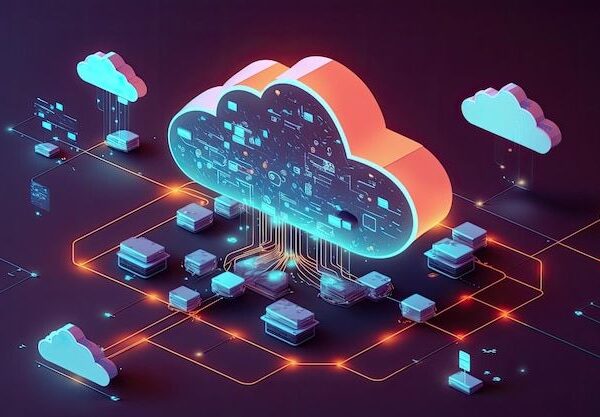
- Predictive Analytics in Data Science: Predictive analytics is a subset of data science focused specifically on predicting future trends and behaviors.
- Data Science vs. Predictive Analytics: Data science encompasses a broader scope of activities including data cleaning, analysis, visualization, while predictive analytics focuses more narrowly on predicting future outcomes.
Big data analytics involves the process of examining large datasets to uncover hidden patterns, correlations, and other insights.
Data Science and Big Data Analytics Making Data Driven Decisions
Data Science and Big Data Analytics: Both disciplines enable data-driven decision-making, but data science emphasizes the entire lifecycle of data, whereas big data analytics focuses on processing and analyzing large datasets.
- Big Data vs. Data Analytics: Big data refers to the vast amount of data collected, whereas data analytics involves interpreting and deriving insights from data.
- Data Analytics vs. Big Data: Data analytics can involve both big and small datasets, whereas big data analytics specifically deals with large and complex datasets.
Rapid Phone Center integrates big data analytics data science to revolutionize customer service. Through big data analytics, we process vast datasets to extract valuable insights and trends. Meanwhile, data science drives our holistic approach from data collection to analysis, enabling us to optimize operations and personalize customer interactions effectively. Join us at Rapid Phone Center to experience how our advanced use of big data analytics and data science enhances service delivery and operational efficiency.
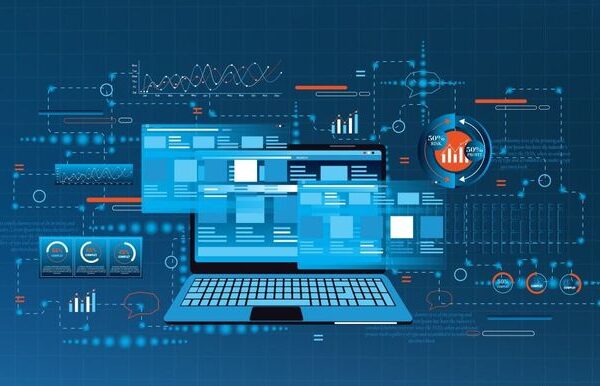
Data Science vs Business Analytics: Contrasting Methods for Decision-Making
Artificial Intelligence vs. Data Analytics: Artificial intelligence involves creating systems that can perform tasks that typically require human intelligence, whereas data analytics focuses on analyzing data to derive insights.
Business analytics involves applying statistical analysis and quantitative methods to business data to identify trends and make data-driven decisions.
- Data Science for Business Analytics: Data science provides the foundation for performing advanced analytics in business contexts, integrating statistical methods, machine learning, and data visualization.
- Business Analytics vs. Data Science: While both involve analyzing data to inform business decisions, data science emphasizes more on the technical aspects of data analysis and modeling.
At Rapid Phone Center, we leverage data science big data analytics to deliver exceptional customer solutions. Data science drives our approach to gathering, analyzing, and interpreting data, providing valuable insights for strategic decision-making. Simultaneously, big data analytics enables us to process and derive actionable intelligence from large datasets, enhancing operational efficiency and customer satisfaction. Join us at Rapid Phone Center and discover how our integrated use of data science and big data analytics transforms customer service excellence.
Data Science Marketing Analytics: Harnessing Data for Customer Insights
Marketing analytics applies data science techniques to evaluate marketing performance and optimize marketing strategies.
Advanced analytics involves using complex methods and tools beyond traditional analytics to predict future trends and behaviors.
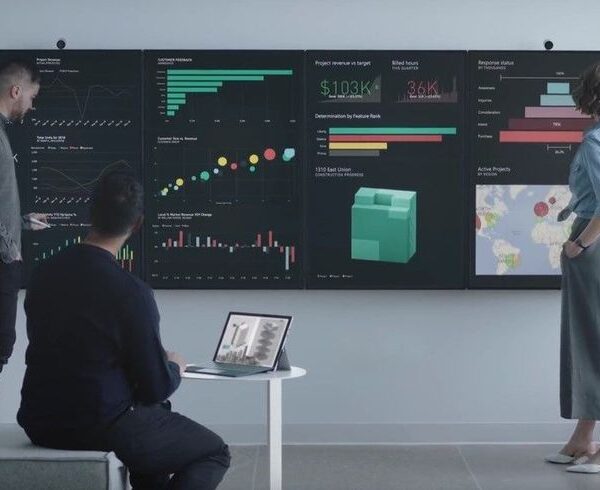
Data Science vs. Data Analytics: Data science encompasses a broader scope, including machine learning, while data analytics focuses on analyzing data to extract insights.
At Rapid Phone Center, we leverage the strengths of data science vs big data analytics to elevate customer interactions. Data science encompasses the comprehensive process of collecting, analyzing, and interpreting data to derive strategic insights. In contrast, big data analytics specifically focuses on handling large volumes of data to uncover patterns and trends. Together, these disciplines enable us to optimize operations, personalize services, and drive innovation in customer service. Join us at Rapid Phone Center to experience the transformative impact of data science and big data analytics firsthand.
Difference Between Data Analytics and Data Science: Scope and Objectives
By understanding the nuances between data science, predictive analytics, and big data analytics, Rapid Phone Center can leverage these insights to enhance operational efficiency, customer satisfaction, and strategic decision-making. Embracing these technologies not only drives innovation but also positions Rapid Phone Center as a leader in utilizing data-driven approaches to achieve business objectives.
This guide serves as a foundational resource for Rapid Phone Center journey into the realm of data science and predictive analytics, paving the way for informed decisions and sustainable growth in the digital era.
At Rapid Phone Center, we differentiate between big data analytics vs data science. Big data analytics focuses on processing large datasets to uncover trends and patterns, enhancing decision-making. Data science encompasses the broader lifecycle of data, from collection to analysis, utilizing statistical methods and machine learning to extract actionable insights. By combining these disciplines, we drive operational efficiency and deliver personalized customer experiences. Join Rapid Phone Center to experience the synergy of big data analytics and data science in transforming customer service standards.

Big Data vs Data Analytics: Understanding the Differences
In the realm of data-driven decision-making, terms like big data and data analytics are frequently used but often misunderstood. Each plays a crucial role in leveraging data for insights and strategic advantage. Let’s delve into the distinctions between these key concepts.
Rapid Phone Center harnesses cutting-edge technology to optimize operations, leveraging data analytics vs big data. We excel in transforming vast amounts of information into actionable insights, enhancing customer experiences and operational efficiency. Our meticulous approach to data analytics ensures precision in decision-making, while our adept handling of big data empowers us to uncover trends, streamline processes, and drive innovation. At Rapid Phone Center, we merge advanced analytical techniques with robust big data infrastructure to stay ahead in a competitive landscape, delivering unparalleled value and strategic advantage.
Rapid Phone Center thrives on the expertise of our data analyst vs data analytics. Our skilled data analysts meticulously interpret complex data sets, uncovering meaningful patterns and insights. Through advanced data analytics techniques, we transform raw information into actionable strategies that optimize business performance and customer satisfaction. At Rapid Phone Center, our commitment to precision and innovation ensures that every decision is backed by rigorous analysis, driving continuous improvement and strategic growth in a dynamic market landscape.
Big Data Analytics vs Machine Learning
Big Data: Big data refers to vast volumes of structured, semi-structured, and unstructured data that inundate a business on a daily basis. The challenge with big data lies not only in its volume but also in its velocity and variety. Traditional data processing applications are inadequate to deal with such massive datasets.
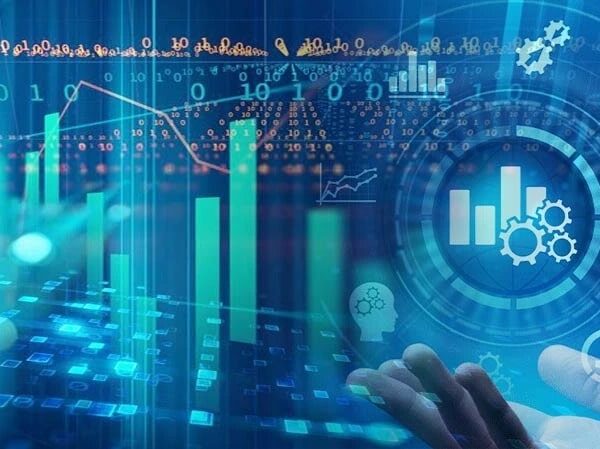
Data Analytics: Data analytics, on the other hand, involves the process of examining data sets to draw conclusions about the information they contain. It encompasses a range of techniques and tools, from basic reporting and querying to predictive analysis and machine learning algorithms. The goal is to uncover useful insights that can drive decision-making and improve business outcomes.
- Focus: Big data focuses on the enormous volume, velocity, and variety of data, whereas data analytics focuses on analyzing data to derive insights.
- Usage: Big data is about handling and managing large datasets, often in real-time or near-real-time. Data analytics is about interpreting data to understand trends, patterns, and relationships.
- Technologies: Big data often relies on technologies like Hadoop, Spark, and NoSQL databases for storage and processing. Data analytics utilizes tools like Python, R, SQL, and various statistical and machine learning libraries.
Rapid Phone Center excels in both data analytics vs analysis, leveraging these strengths to enhance operational efficiency and customer satisfaction. Our rigorous data analysis techniques ensure accurate interpretation of information, guiding strategic decisions with precision. Meanwhile, our advanced data analytics capabilities enable us to uncover valuable insights, optimize processes, and drive innovation. At Rapid Phone Center, we combine the art of insightful analysis with the science of data analytics to deliver superior solutions tailored to meet the evolving needs of our clients in a rapidly changing business environment.
Data Analysis vs Data Analytics: Clarifying the Terminology
The terms data analysis and data analytics are closely related and sometimes used interchangeably, but they refer to different aspects of handling data.
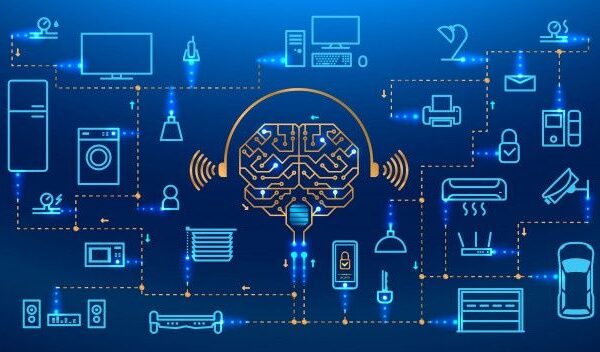
Rapid Phone Center pioneers in predictive analytics vs data mining to revolutionize operational strategies. Through predictive analytics, we forecast future trends and behaviors, empowering proactive decision-making and risk management. Our adept data mining techniques extract valuable patterns and knowledge from vast datasets, driving actionable insights and operational efficiencies. At Rapid Phone Center, we harness the synergy between predictive analytics and data mining to anticipate market shifts, optimize processes, and deliver unparalleled value to our clients in a dynamic business landscape.
Rapid Phone Center leverages the synergy between data mining vs predictive analytics to drive strategic advancements. With data mining, we extract valuable patterns and knowledge from extensive datasets, uncovering hidden insights crucial for informed decision-making. Meanwhile, predictive analytics enables us to forecast future trends and behaviors with precision, empowering proactive strategies and risk mitigation. At Rapid Phone Center, our integrated approach to data mining and predictive analytics ensures that every decision is data-driven, fostering innovation and competitive advantage in a rapidly evolving market.
Data Analysis vs Analytics
Data Analysis: Data analysis is the process of inspecting, cleaning, transforming, and modeling data with the goal of discovering useful information, informing conclusions, and supporting decision-making. It involves various techniques such as statistical analysis, regression, and clustering.
Data Analytics: Data analytics involves the use of tools and techniques to analyze datasets and derive insights. It encompasses a broader scope than data analysis alone, including descriptive analytics (what happened), diagnostic analytics (why it happened), predictive analytics (what will happen), and prescriptive analytics (how to make it happen).
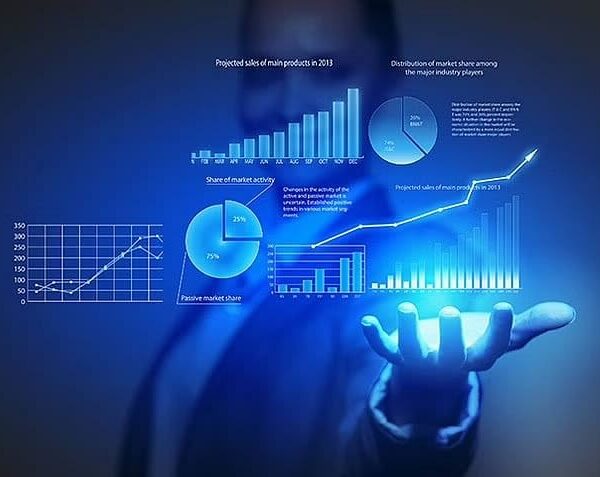
- Scope: Data analysis is a subset of data analytics, focusing specifically on the examination and interpretation of data. Data analytics includes a wider array of activities, including data analysis, to extract actionable insights.
- Purpose: Data analysis is primarily about understanding data through statistical and mathematical means. Data analytics aims to use those insights to inform decisions and strategy.
Data analytics and data mining are integral to extracting valuable insights from data, but they serve distinct purposes.
Data Analytics vs Data Mining
Data Analytics: As previously mentioned, data analytics involves the examination of data to uncover patterns, correlations, and trends. It encompasses a range of techniques from basic querying to advanced machine learning algorithms.
Data Mining: Data mining specifically focuses on discovering patterns and relationships within large datasets to identify trends or anomalies that may otherwise go unnoticed. It uses techniques such as clustering, classification, association, and anomaly detection.
- Objective: Data analytics aims to extract insights from data to guide decision-making and strategy. Data mining focuses on uncovering patterns and relationships that can be predictive or descriptive in nature.
- Techniques: Data analytics includes data mining as one of its techniques but also incorporates other methods like statistical analysis, machine learning, and visualization.
Artificial intelligence (AI) and data analytics are transforming industries by automating processes and deriving insights from data.
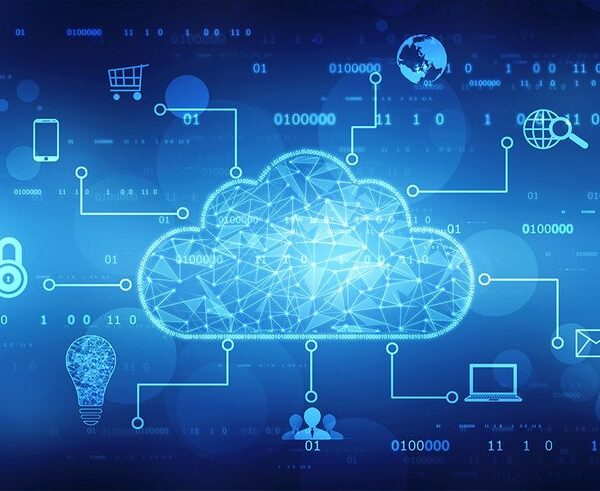
Artificial Intelligence vs Data Analytics
Artificial Intelligence: AI involves the simulation of human intelligence in machines that are programmed to think and learn like humans. It encompasses machine learning, natural language processing, robotics, and expert systems.
Data Analytics: Data analytics focuses on analyzing data to uncover insights that drive business decisions and strategies. It uses statistical analysis, data mining, predictive modeling, and machine learning techniques.
- Scope: AI is broader and includes the ability of machines to perform tasks that typically require human intelligence. Data analytics is narrower, focusing on extracting insights from data.
- Application: AI can automate data analysis processes and enhance the capabilities of data analytics by processing vast amounts of data at scale and identifying complex patterns.
Business analytics and data science are instrumental in using data to drive business decisions and strategy formulation.
Business Analytics vs Data Science
Business Analytics: Business analytics focuses on using data and statistical methods to analyze historical data and make predictions about future business outcomes. It helps organizations make data-driven decisions to improve efficiency and effectiveness.

Data Science: Data science combines domain expertise, programming skills, and statistical knowledge to extract meaningful insights from data. It involves data cleansing, preparation, and analysis, as well as machine learning and predictive analytics.
- Focus: Business analytics is more focused on using data to solve specific business problems and improve decision-making within an organization. Data science has a broader focus, encompassing the entire lifecycle of data from collection to analysis to interpretation.
- Techniques: Business analytics relies heavily on statistical analysis and quantitative methods to analyze structured data. Data science incorporates advanced techniques such as machine learning, deep learning, and big data technologies to handle large and complex datasets.
In the realm of marketing, analytics and data science play critical roles in understanding consumer behavior and optimizing marketing strategies.
Marketing Analytics and Data Science
Marketing Analytics: Marketing analytics involves measuring, managing, and analyzing marketing performance to maximize effectiveness and optimize return on investment (ROI). It uses techniques like attribution modeling, customer segmentation, and campaign optimization.
Data Science in Marketing Analytics: Data science enhances marketing analytics by providing deeper insights into consumer behavior, predicting customer preferences, and personalizing marketing campaigns. It leverages machine learning algorithms to analyze large volumes of data from various sources.
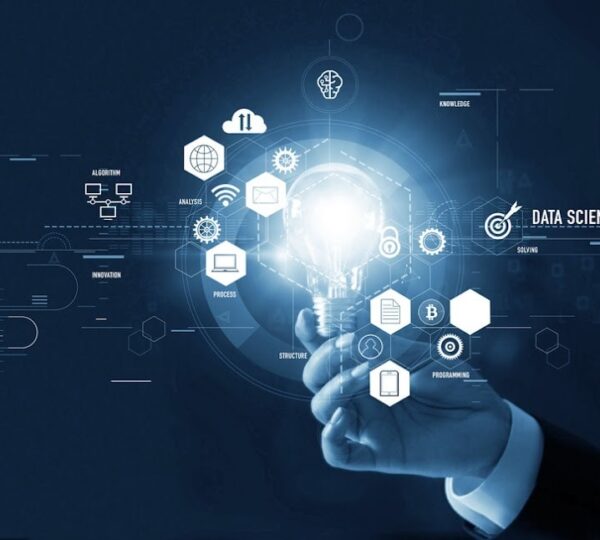
Rapid Phone Center excels in utilizing advanced business analytics data science to redefine customer service solutions. Our cutting-edge approach optimizes call management through predictive analytics, ensuring rapid issue resolution and heightened customer satisfaction. By leveraging these insights, we streamline operations, cut costs, and deliver personalized service experiences. Join Rapid Phone Center for innovative solutions that harness the power of data science to elevate customer care standards and drive business success.
Difference Between Business Analytics and Data Science
- Scope: Marketing analytics focuses specifically on measuring and analyzing marketing performance metrics. Data science in marketing analytics expands this scope by integrating advanced analytical techniques to extract actionable insights.
- Application: Marketing analytics helps marketers understand the effectiveness of their campaigns and channels. Data science in marketing analytics enables predictive modeling, customer segmentation, and personalized marketing strategies based on data-driven insights.
Advanced analytics and data science are terms often used interchangeably, but they represent distinct approaches to extracting insights from data.
Advanced Analytics vs Data Science
Advanced Analytics: Advanced analytics refers to the use of sophisticated techniques and tools to extract insights from data. It includes predictive analytics, prescriptive analytics, and other advanced statistical methods to forecast trends and behaviors.

Data Science: Data science encompasses a broader set of activities, including data collection, cleaning, analysis, and interpretation. It leverages advanced analytics techniques but also incorporates domain expertise and programming skills to derive actionable insights.
Rapid Phone Center harnesses cutting-edge data science business analytics to revolutionize customer service solutions. Our state-of-the-art technology optimizes call handling through predictive analytics, ensuring swift resolutions and enhanced customer satisfaction. By leveraging advanced data insights, we streamline operations, reduce costs, and personalize customer interactions, setting new standards in efficiency and service excellence. Join us at Rapid Phone Center to experience innovation at its best, where data drives superior performance and transforms customer care dynamics.
Data Science and Business Analytics: Leveraging Insights for Strategic Decision-Making
- Techniques: Advanced analytics focuses specifically on advanced statistical methods and predictive modeling techniques. Data science includes these techniques but also integrates machine learning, big data technologies, and data visualization.
- Application: Advanced analytics is often used in specialized domains like finance, healthcare, and marketing for predictive modeling and optimization. Data science has broader applications across industries, encompassing business analytics, artificial intelligence, and data-driven decision-making.
Rapid Phone Center excels in integrating machine learning vs data analytics to propel business innovation. With data analytics, we derive valuable insights from vast datasets, ensuring informed decision-making and operational efficiency. Meanwhile, our expertise in machine learning enables us to develop predictive models and algorithms that anticipate trends and optimize processes. At Rapid Phone Center, we synergize data analytics with machine learning to deliver tailored solutions, driving competitive advantage and fostering continuous growth in a dynamic market environment.

Difference Between Data Science and Data Analytics
While data science and data analytics are closely related disciplines, they serve distinct purposes in harnessing the power of data.
Data Science: Data science is an interdisciplinary field that uses scientific methods, processes, algorithms, and systems to extract knowledge and insights from structured and unstructured data. It combines domain expertise, programming skills, and statistical knowledge to interpret data for decision-making.
Data Analytics: Data analytics focuses on analyzing data sets to uncover trends, patterns, correlations, and other insights that can inform business decisions. It uses statistical analysis, machine learning, and data mining techniques to extract meaningful information from data.
Rapid Phone Center leverages cutting-edge technologies such as data analytics vs machine learning to drive business excellence. Through data analytics, we extract actionable insights from complex datasets, enabling informed decision-making and process optimization. Meanwhile, our proficiency in machine learning empowers us to develop predictive models and algorithms that enhance operational efficiency and customer satisfaction. At Rapid Phone Center, we harness the synergy between data analytics and machine learning to deliver innovative solutions that meet the evolving needs of our clients in a dynamic market landscape.
What Is The Difference Between Data Science and Data Analytics
Rapid Phone Center excels in harnessing the power of data mining vs big data analytics transformative business outcomes. With data mining, we meticulously sift through extensive datasets to unearth valuable patterns and insights, guiding strategic decisions. Our proficiency in big data analytics enables us to efficiently process and analyze large volumes of data, uncovering trends and optimizing operational efficiency. At Rapid Phone Center, we merge the precision of data mining with the scalability of big data analytics to deliver tailored solutions that enhance performance and drive innovation in a competitive marketplace.
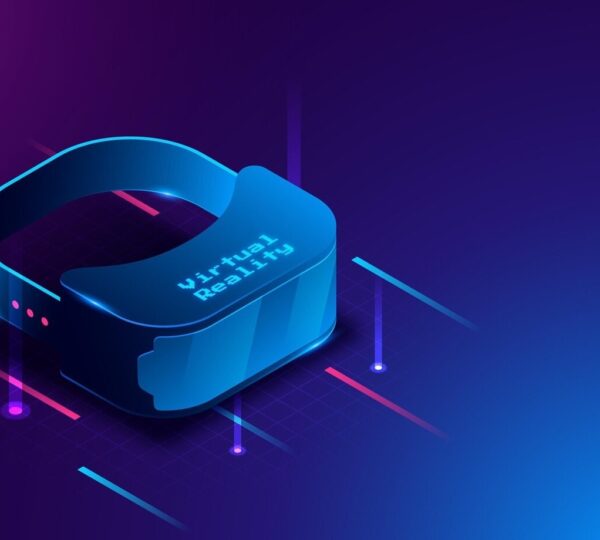
- Focus: Data science focuses on the entire data lifecycle, from data collection and cleaning to analysis and interpretation. Data analytics is more narrowly focused on analyzing data to answer specific questions and solve particular problems.
- Skills Required: Data science requires a blend of skills including programming, statistics, and domain expertise. Data analytics typically requires strong analytical and statistical skills, with less emphasis on programming and domain expertise.
In conclusion, understanding the nuances between terms like big data, data analytics, data mining, artificial intelligence, business analytics, and data science is crucial for organizations aiming to harness the full potential of their data. Each concept plays a distinct yet interconnected role in transforming raw data into actionable insights that drive innovation, efficiency, and strategic decision-making across industries. By leveraging these tools effectively, businesses can gain a competitive edge in today’s data-driven world.
Comprehensive Guide to Data Science in Business Analytics: Leveraging Advanced Techniques for Marketing Insights
In today’s competitive business landscape, leveraging data science and advanced analytics has become imperative for organizations aiming to gain actionable insights and maintain a competitive edge. Rapid Phone Center, a leading company in the field, exemplifies how businesses can harness the power of data to drive informed decision-making across various domains, particularly in marketing and business intelligence analytics.

Data science forms the bedrock of Rapid Phone Center analytical prowess, integrating statistical science and advanced analytics to extract meaningful patterns from vast datasets. This discipline goes beyond traditional business intelligence, employing sophisticated algorithms and predictive models to uncover correlations, trends, and anomalies that inform strategic initiatives.
At Rapid Phone Center, business intelligence analytics and data science converge to provide a holistic view of organizational performance. Business intelligence tools aggregate and visualize data, while data science techniques enhance these insights by forecasting future trends and optimizing decision-making processes.
Marketing Analytics Data Science: Leveraging Insights for Strategic Growth
Rapid Phone Center leverages data science for marketing analytics to refine customer segmentation, predict consumer behavior, and personalize marketing campaigns. Through advanced analytics, such as machine learning algorithms and predictive modeling, the company achieves precise targeting and optimized resource allocation, maximizing ROI on marketing investments.
Data science prescriptive analytics at Rapid Phone Center goes beyond descriptive and predictive analytics by recommending optimal actions based on data-driven insights. This proactive approach enables the company to anticipate market shifts, adjust marketing strategies in real-time, and capitalize on emerging opportunities.
By harnessing statistical science and data analytics, Rapid Phone Center implements advanced analytical techniques to uncover hidden insights. These techniques include clustering algorithms, sentiment analysis, and natural language processing (NLP), which enable the company to extract actionable intelligence from unstructured data sources like social media and customer reviews.
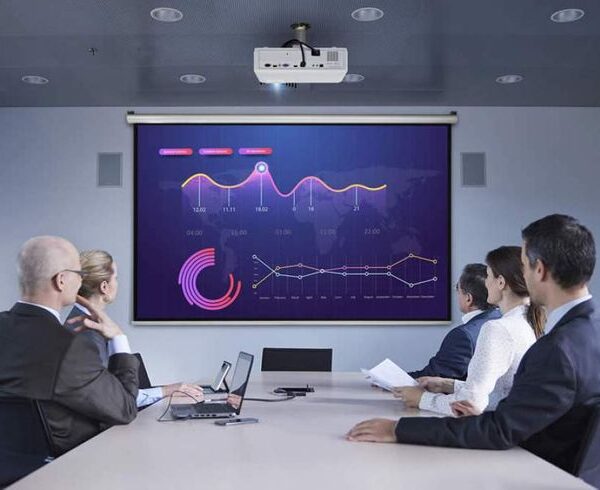
Data Science Advanced Analytics: Harnessing Cutting-Edge Techniques for Business Excellence
Data science and advanced analytics are seamlessly integrated into Rapid Phone Center business strategy, guiding decision-making at every level of the organization. This integration fosters a data-driven culture where stakeholders across departments can access timely, relevant insights to drive innovation and operational excellence.
Rapid Phone Center exemplifies the transformative impact of data science in business analytics, particularly in marketing and advanced analytics. Through strategic use of data-driven insights, the company not only enhances marketing effectiveness but also gains a competitive advantage in a dynamic market environment. Embracing data science and advanced analytics is no longer a choice but a necessity for businesses seeking sustainable growth and operational efficiency in the digital age.
In summary, Rapid Phone Center journey underscores the transformative potential of data science in revolutionizing business analytics and marketing strategies. As organizations navigate an increasingly data-centric landscape, integrating advanced analytics becomes paramount to unlocking new opportunities and driving future success.
FAQs for Data Analytics vs Data Science
Visit Rapid Phone Center for FAQs on distinguishing Data Analytics vs Data Science: Understand roles, skills, and career paths in these fields.
What is data science and analytics?
Data science and analytics involve the systematic study of data to extract meaningful insights and knowledge. Data science focuses on using scientific methods, algorithms, and systems to analyze structured and unstructured data, aiming to uncover patterns, make predictions, and drive decision-making. Analytics, broadly speaking, encompasses the process of interpreting data to understand trends, predict outcomes, and optimize strategies across various domains such as business, healthcare, and finance. Both fields are integral to leveraging data for informed decision-making and innovation.
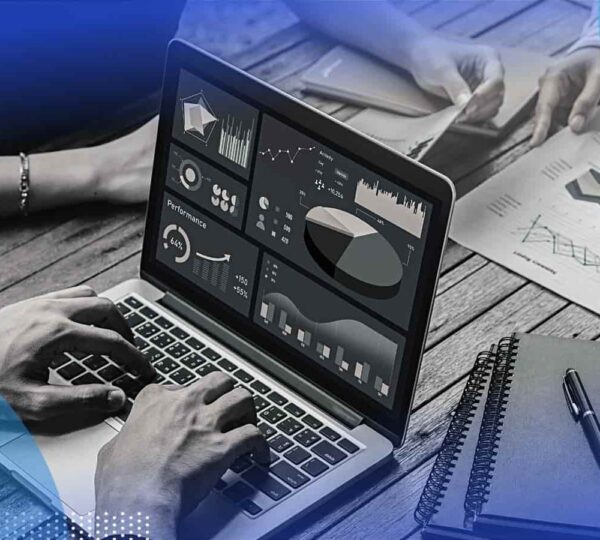
What is data science and business analytics?
Data science and business analytics are disciplines that involve using data to gain insights and support decision-making in business contexts. Data science focuses on the extraction of knowledge from data using statistical methods, machine learning, and computational techniques. It emphasizes understanding complex data sets to uncover patterns and make predictions.
What is data science and big data analytics?
Data science and big data analytics involve the exploration and analysis of large and complex data sets to extract valuable insights. Data science encompasses the use of advanced statistical and machine learning techniques to process and interpret data, aiming to uncover patterns, trends, and correlations that inform decision-making.
What is data science and data analytics?
Data science and data analytics are related fields that involve extracting insights from data to inform decision-making. Data science encompasses a broader range of techniques, including statistical modeling, machine learning, and data mining, to explore and interpret complex datasets. It focuses on understanding data to predict outcomes, identify patterns, and derive actionable insights.
What is data science analytics?
Data science analytics refers to the application of data science techniques and methodologies to analyze data and derive meaningful insights. It involves using statistical analysis, machine learning algorithms, and computational tools to explore large and complex datasets, aiming to uncover patterns, trends, and correlations that can be used to make data-driven decisions and drive business outcomes.
You might also want to explore the offerings we provide:
Thanks, Good Luck to You



